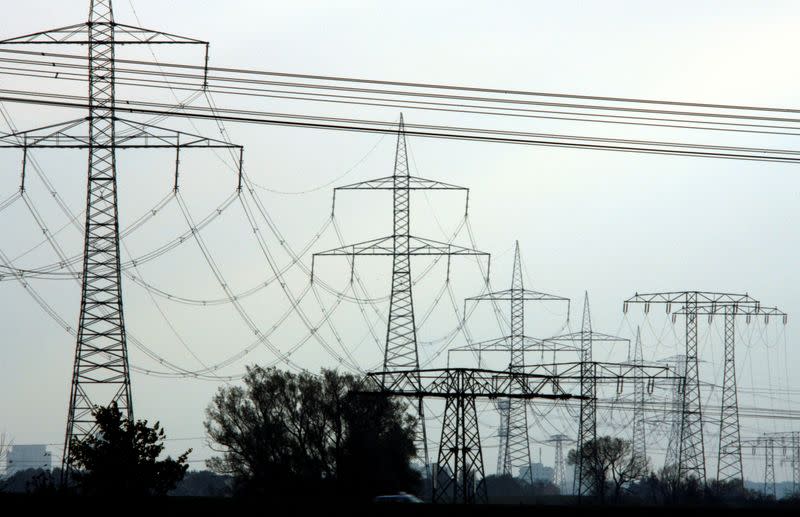Germany to cap electricity prices for households, industry - govt draft

BERLIN (Reuters) -Germany will introduce a price cap on electricity for households and industrial consumers as part of measures to help Europe's largest economy weather an energy crisis, according to a draft document from the chancellery seen by Reuters on Tuesday.
For industrial consumers, electricity will be limited to 13 euro cents per kilowatt-hour (kWh) applied for 70% of the previous year's consumption, according to the document.
For households, prices will be capped at 40 cents per kWh for 80% of basic consumption, it added.
The difference between the market price to be paid and the cap, which will enter effect from Jan. 1, would be offset directly by the suppliers with a monthly deduction.
The electricity price cap comes in addition to a cap on gas prices and a one-off payment to relieve household consumers that the government is expected to adopt as part of a 200 billion euro package announced by Chancellor Olaf Scholz in September.
According to the draft seen by Reuters on Tuesday, the government is seeking for the gas price brake to take effect in February, a month earlier than had been outlined in a commission proposal.
The measure has brought scrutiny from the European Union, which has been critical of Germany's more go-it-alone approach that highlights the differences between rich and poor members.
(Reporting by Holger Hansen, Writing by Miranda Murray, Editing by Paul Carrel)

 Yahoo Finance
Yahoo Finance 